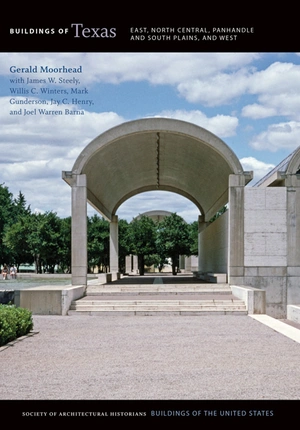
The El Paso Museum of Art, organized in 1947 as the El Paso International Museum, was originally housed in the Classical Revival William W. Turney House (EP44). After the museum outgrew the house by the early 1990s, this former Greyhound Bus Station was converted into an art museum. Architects BKM wrapped a thirty-foot-tall entrance space around the building’s Sheldon Court and N. Santa Fe Street corner, erected a new facade of colored concrete facing Santa Fe Street, and extended the footprint of the bus station into Sheldon Court and the alley alongside the Plaza Theater. They converted the station’s parking garage into galleries. The museum’s permanent collection includes paintings and sculpture dating from the fifteenth through the eighteenth centuries donated to the museum by the Samuel H. Kress Foundation in 1961, as well as the collection of El Paso artist and writer Tom Lea.

